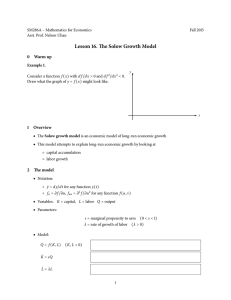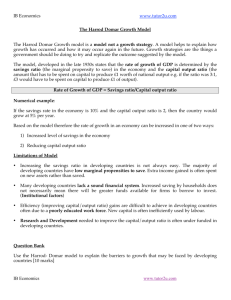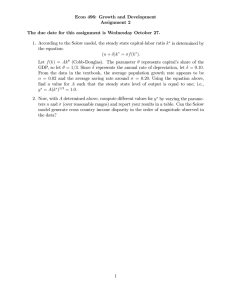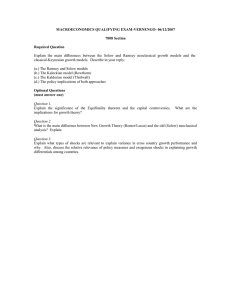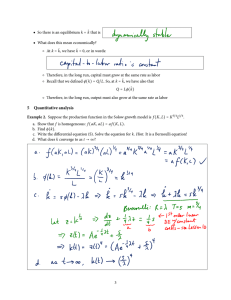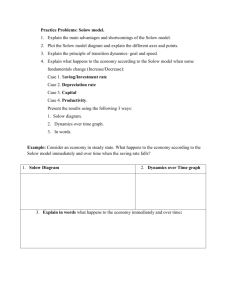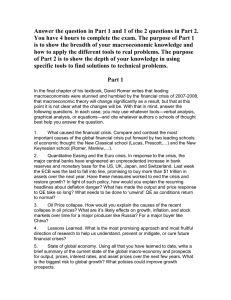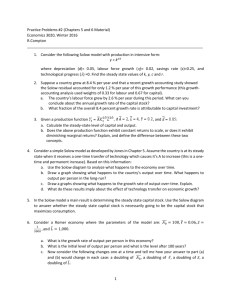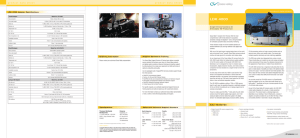Sep 7 Phase Portraits dx/dt = rx(1 − x/K) dx/dt = rx(1 − x/K)
advertisement
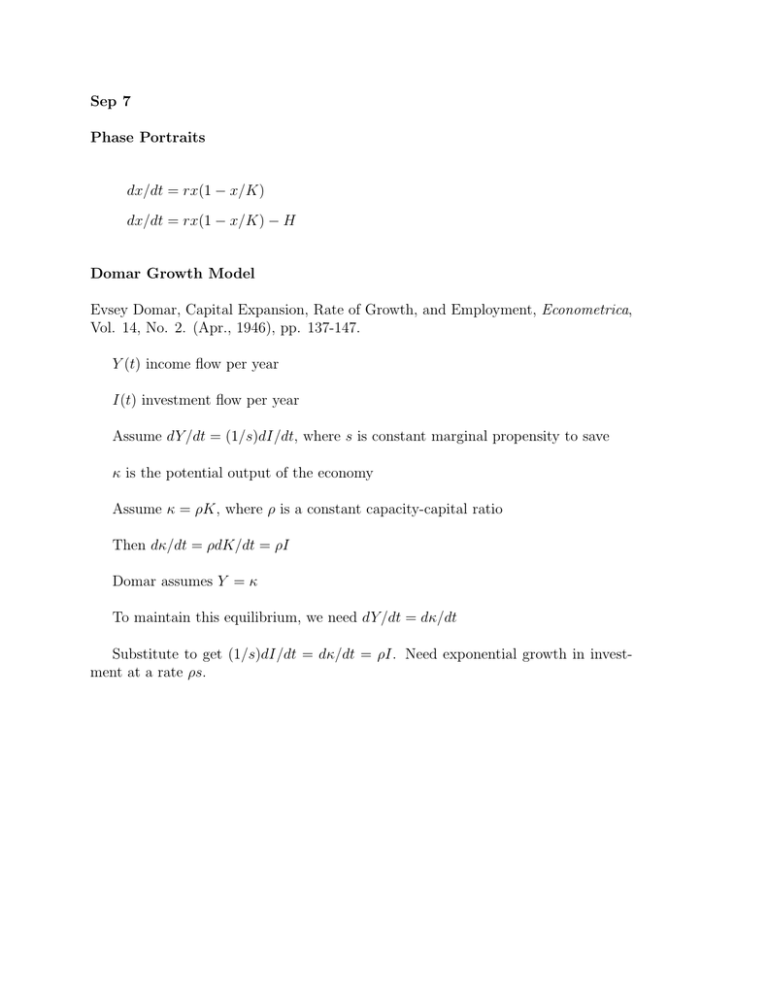
Sep 7 Phase Portraits dx/dt = rx(1 − x/K) dx/dt = rx(1 − x/K) − H Domar Growth Model Evsey Domar, Capital Expansion, Rate of Growth, and Employment, Econometrica, Vol. 14, No. 2. (Apr., 1946), pp. 137-147. Y (t) income flow per year I(t) investment flow per year Assume dY /dt = (1/s)dI/dt, where s is constant marginal propensity to save κ is the potential output of the economy Assume κ = ρK, where ρ is a constant capacity-capital ratio Then dκ/dt = ρdK/dt = ρI Domar assumes Y = κ To maintain this equilibrium, we need dY /dt = dκ/dt Substitute to get (1/s)dI/dt = dκ/dt = ρI. Need exponential growth in investment at a rate ρs. Solow Growth Model Robert M. Solow, A Contribution to the Theory of Economic Growth, The Quarterly Journal of Economics, Vol. 70, No. 1. (Feb., 1956), pp. 65-94. Production function Q = f (K, L) Q is output (net of depreciation) K is capital, K > 0 L is labor, L > 0 Assume fK , fL > 0 (positive marginal products) and fKK , fLL < 0 (diminishing returns) Assume Q is homogeneous, i.e. Q = Lf (K/L, 1) = Lφ(k), where k = K/L Show φ0 (k) > 0 and φ00 (k) < 0. Use fK > 0, fKK < 0 and L > 0. Solow assumes dK/dt = sQ (constant proportion of Q invested, s is the marginal propensity to save) and dL/dt = λL, λ > 0 (labor force grows exponentially, λ is the rate of growth of labor) Note that assumptions are about how the rates of change are determined. Substitute for Q, dK/dt = sLφ(k) Differntiate K = kL, dK/dt = Ldk/dt + kdL/dt = Ldk/dt + λkL Obtain dk/dt = sφ(k) − λk. Find the phase portrait for the Solow model. Show that any equilibrium is stable. Assume Q = Lk α . Assignment: Find the phase portraits for 3.25, 3.37, 3.40, 3.45
